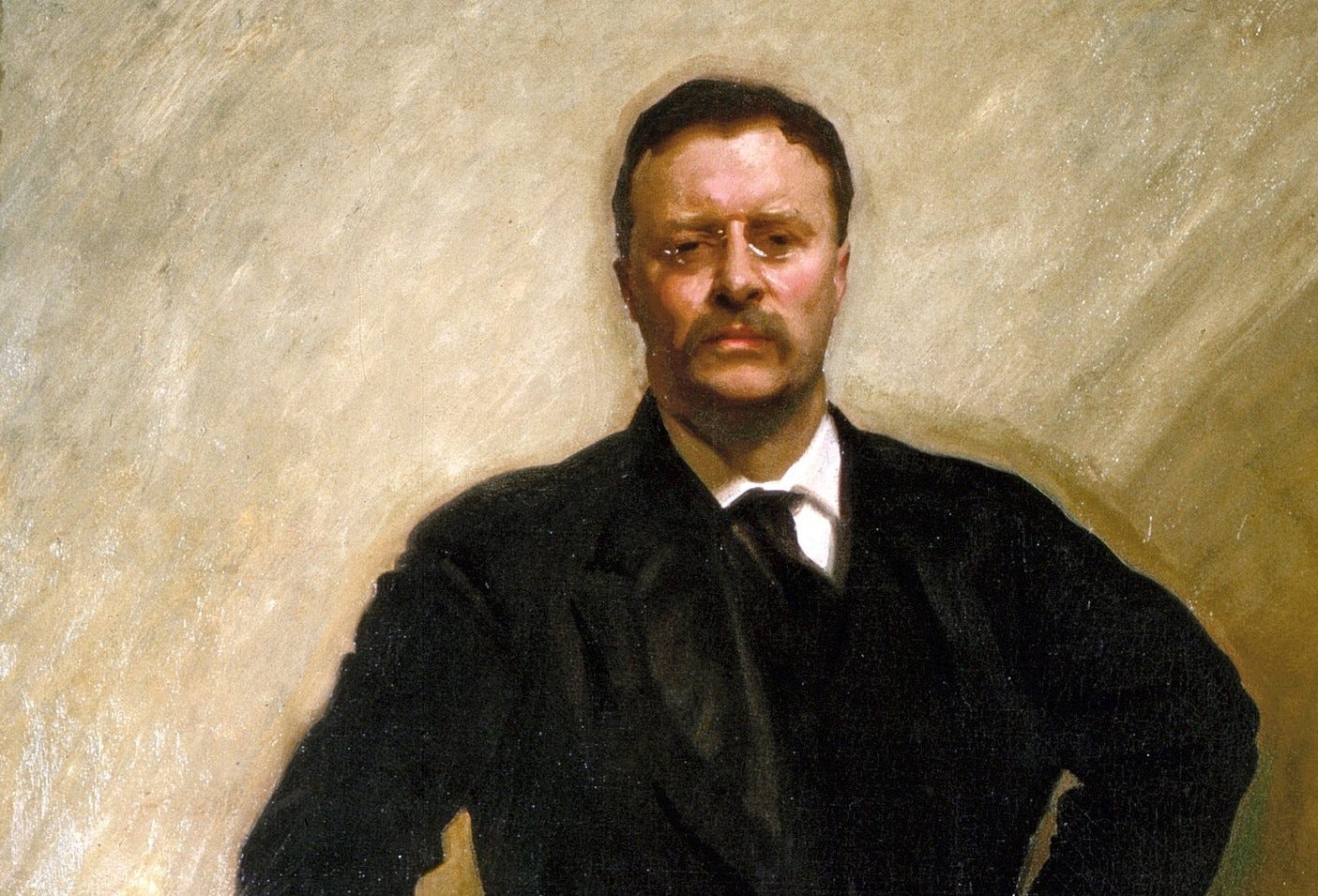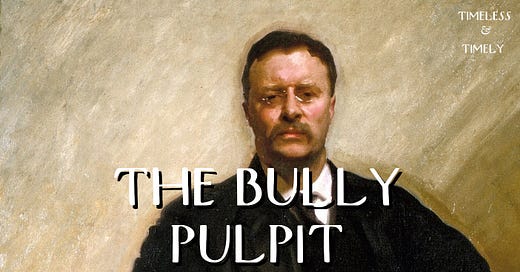
“If the facts are against you, argue the law. If the law is against you, argue the facts. If the law and the facts are against you, pound the table and yell like hell.” ― Carl Sandburg
Have you ever had to deal with a bully?
It’s not fun.
Not like in the “Oh, this is boring, let’s find something else to do” kind of not fun.
As in you’re thinking about the aggressor all day, trying to find ways to avoid him, coming up with things you might say to put him off, or even mapping out how you might handle yourself if things get physical.
It’s terrifying, exhausting, and downright debilitating.
Oh — and the phase “bully pulpit” has nothing to do with being a bully. More below.
Keep reading with a 7-day free trial
Subscribe to Timeless & Timely to keep reading this post and get 7 days of free access to the full post archives.




